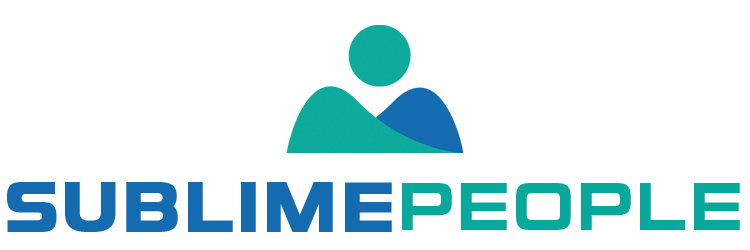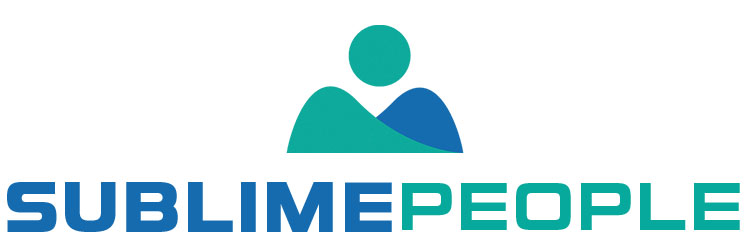Skills assessment is an important part of any recruitment process. But, did you know there are many different types of skills assessments employers can use when evaluating candidates? From industry-specific assessments to personality and aptitude testing, all test formats measure a candidate’s ability to perform specific tasks in their prospective job roles. Understanding the different types of skills assessments for employment will help you select the right ones for your organization, saving time and effort while ensuring that potential candidates meet pre-defined hiring criteria.
In this blog post, we will explore the various methods organizations use today to assess skill levels within their applicants.
In this Article:
What is skill-based assessment?
A skills assessment test is a standardized test that measures a job candidate’s skills and current level of knowledge. It is designed to evaluate skills related to the role or industry for which they apply. Skills assessment tests can include a variety of skills, ranging from technical skills to soft skills and job-specific aptitude tests. Depending on the particular job, skill tests can assess everything from coding skills to communication skills.
There are different types of skills assessments that help employers identify and hire the best-suited individual for a particular job. They provide valuable insight into job candidates’ skills, knowledge, and abilities, assisting organizations to decide whether they are the right fit for a given role.

Skill assessment tests vs. other assessment methods
Employers can use many different assessment methods to evaluate applicants, but skills assessment tests offer the most comprehensive approach. Unlike other testing methods such as job interviews and pre-employment tests, skills assessment tests objectively measure a candidate’s skills and ability to perform specific tasks in a particular job role.
When it comes to skills assessment tests, there are two main types: hard and soft skills.
- Hard skills tests measure a candidate’s technical abilities, such as their proficiency in coding skills, programming languages, and other technical skills. These tests assess a candidate’s ability to perform specific job-related tasks most efficiently.
- Soft skills tests measure a candidate’s interpersonal skills, such as communication and emotional intelligence. These tests evaluate a candidate’s social skills and ability to work within a team environment.
What are skill assessment tools?
Skill assessment tools are online tests employers use to evaluate job applicants’ skills. Skill assessment tools help employers identify potential job candidates’ skills and abilities and match them to job roles within their organization. The skills tests measure various skills, such as technical skills, soft skills, and cognitive skills.
Employers use these skills assessment tools to assess job applicants during the recruitment process. They also use them to evaluate current employees for skills development and career progression.

Types of skills assessments tests
Research test
Skill assessment tests require a deep dive into research, both offline and online. This is your opportunity to showcase how well you can work with data, extract the most pertinent facts from huge amounts of information, and apply it accurately. When taking a research test, you might be asked to collect and analyze data, develop strategies based on the criteria, and develop creative solutions for a problem.
Verbal tests
Verbal skill assessment tests measure a person’s ability to understand, interpret, and use written information. These tests may include questions about grammar and syntax, as well as comprehension skills. The verbal assessment is a skills assessment tool that will evaluate your capacity to both interpret emails and craft reports or emails of your own. Rest assured, you’ll be able to demonstrate the skills required on this test if you have a good command of the English language.
Technical assessment tests.
These skills assessment tests measure a candidate’s technical skills and aptitude in specific areas. They are used to evaluate a candidate’s skills in programming languages, coding skills, and other technical skills. Technical skills tests allow employers to assess a candidate’s job knowledge and identify skills gaps that need to be filled.
Simulations
Simulation skills assessment tests are designed to evaluate a person’s performance in an artificial environment that mimics the job role. These skills tests measure skills such as problem-solving, decision-making, and situational judgment. Simulation assessments allow employers to evaluate a candidate’s skills in a real-life scenario.

Personality Tests
Personality skills assessment tests evaluate a candidate’s character traits and emotional intelligence skills during the interview process. These skills tests measure the candidate’s ability to interact with others, how they handle difficult situations, and their overall outlook on life. Personality skills tests provide employers with invaluable information about a candidate’s potential to fit into the company culture.
Psychometric tests
Psychometric skills assessment tests measure a candidate’s cognitive ability. These skills tests evaluate the candidate’s skills in areas such as numerical skills, verbal skills, analytical skills, and problem-solving skills. Psychometric tests provide employers with an insight into a candidate’s abilities and skills that may not be identified in a job interview.
Cognitive ability tests
Cognitive skills assessment tests evaluate candidates on their skills in areas such as numerical skills, verbal skills, analytical skills, and problem-solving skills. This skill test provides employers with valuable insight into a candidate’s skills and potential for success in the role.
Why should a company use skills assessment tests?
Skill tests provide reliable information about candidates’ skills. The program assists employers in eliminating people who need to be qualified for their job positions. These tests allow employers to check candidates’ claims and identify candidates better qualified for another position. Employers could use such tests to find workers ready for promotions or needing a change in roles. Skills assessments are a tool that employers can use when looking for areas of improvement.
1. To identify the candidate’s strengths and weaknesses
One of the primary reasons why companies use relevant skills is to identify the candidate’s strengths and weaknesses. Most skill assessment tests are designed to evaluate a candidate’s skills in areas such as communication skills, technical skills, cognitive ability, and emotional intelligence skills. By understanding where the candidate excels and where they need improvement, the company can determine whether the candidate is good for the position or not.
2. To gauge the candidate’s level of experience
Another reason why companies use skill assessment tests is to gauge the candidate’s level of experience. By assessing the candidate’s skills, companies can better understand how much experience the candidate has and whether or not they would be able to handle the demands of the job.

3. To evaluate the candidate’s potential
In addition to gauging the candidate’s experience level, companies also use test skills to evaluate the candidate’s potential. By understanding the candidate’s skills, companies can get a better idea of how successful the candidate might be in the future.
4. To save time in the hiring process
Another benefit of skill tests is that they can help save time in the hiring process. By identifying candidates who are not a good fit for the position early on, companies can avoid spending time interviewing and assessing them.
5. To reduce turnover
Using a skill assessment test can also help companies to reduce turnover. By hiring employees who are a good fit for the position and have the necessary skills, companies can only replace employees who are well-suited for their job. Additionally, by providing employees with opportunities to improve their skills, companies can reduce turnover by keeping employees engaged and motivated.
6. To improve customer satisfaction
Finally, a skill assessment test can also help companies improve customer satisfaction. By hiring employees with the necessary skills to provide excellent customer service, companies make sure that their customers feel good about their experience. Additionally, by providing employees with opportunities to improve their skills, companies can improve customer satisfaction by ensuring that employees always provide high-quality service.

How do I write a skills assessment test?
1. Define the purpose of the skills assessment test.
The first step in writing a skills assessment test is to define the test’s purpose. What skills do you want to assess? What knowledge do you want to test? Once you clearly understand the test’s purpose, you can begin to develop the questions.
2. Develop a list of skills and knowledge areas to be tested.
Next, you will need to develop a list of skills and knowledge areas that you want to test. This list should be comprehensive, covering all areas you want to assess. Once you have developed this list, you can begin creating the test questions.
3. Write questions that assess the desired skills and knowledge.
The questions for your skills assessment test should be designed to assess the specific skills and knowledge you have identified as important. Make sure each question is clear and concise and tests only one skill or knowledge area.
4. Choose a format for the skills assessment test.
Once you have written the questions for your skills assessment test, you will need to choose a format for the test. Will it be a paper-and-pencil test? An online test? A spoken exam? The format of the test will depend on the type of skills being assessed and on your preferences as the test creator.
5. Review and revise the skills assessment test.
Once you have written the questions for your skills assessment test and chosen a format, you should review the entire test for accuracy and clarity. Make sure that the questions are clear, concise, and accurate, and that they accurately assess the skills and knowledge levels you are looking for. Once satisfied with the skills assessment test, you can begin administering it to job candidates or current employees.

How do I choose the right type of skill assessment test?
Different skills evaluations are performed to measure various soft and technical abilities. Generally, it depends on the role and the skills required to succeed in the job. Still, some skills assessment tools are commonly used, such as aptitude tests, coding skills tests, personality tests, job knowledge tests, skills tests, and situational judgment tests.
Determine their goals
When evaluating an organization, employers must determine what it needs. Is the skills assessment being used to assess an existing employee’s skills or a job applicant’s? If it’s for a job candidate, are they assessing skills for a specific position or skills that can be applied to any role? If it’s for an existing employee, are they evaluating skills to identify areas where they need additional training or skills that could be developed to help them advance in the company?
Decide which skills they want to measure
Once employers have determined their goals, they must decide which skills and knowledge areas to measure. For job candidates, skills should be tailored to the role, and employers should look for skills that are suitable for the job, such as technical skills, soft skills, and aptitude tests. For existing employees, skills assessments can focus on more general skills such as communication skills, emotional intelligence, job knowledge tests, and company culture.

A word from SublimePeople
As we have seen, several different types of skills assessments can be used for employment. Each type has its advantages and disadvantages, so it is crucial to choose the right one for the job. As an employer, you must assess the right skills for each position. The type of skills assessment you select will help ensure that you find the most qualified candidate possible. It will also help you identify, develop and evaluate skills in your current employees. With the right skills assessment tool, you will gain valuable insight into the skills of job candidates and current employees, assess their skills accurately, and ensure that they are a good fit for the company.
You might also be interested in Tips on How to Prepare For a Skills Assessment




